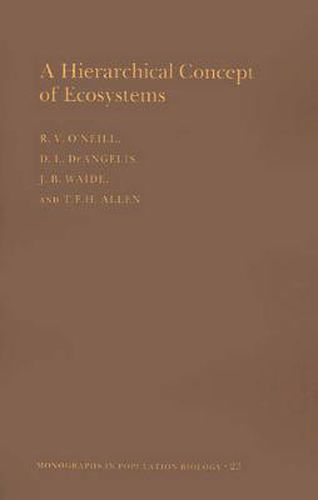Readings Newsletter
Become a Readings Member to make your shopping experience even easier.
Sign in or sign up for free!
You’re not far away from qualifying for FREE standard shipping within Australia
You’ve qualified for FREE standard shipping within Australia
The cart is loading…






Ecosystem is an intuitively appealing concept to most ecologists, but, in spite of its widespread use, the term remains diffuse and ambiguous. The authors of this book argue that previous attempts to define the concept have been derived from particular viewpoints to the exclusion of others equally possible. They offer instead a more general line of thought based on hierarchy theory. Their contribution should help to counteract the present separation of subdisciplines in ecology and to bring functional and population/community ecologists closer to a common approach. Developed as a way of understanding highly complex organized systems, hierarchy theory has at its center the idea that organization results from differences in process rates. To the authors the theory suggests an objective way of decomposing ecosystems into their component parts. The results thus obtained offer a rewarding method for integrating various schools of ecology.
$9.00 standard shipping within Australia
FREE standard shipping within Australia for orders over $100.00
Express & International shipping calculated at checkout
Ecosystem is an intuitively appealing concept to most ecologists, but, in spite of its widespread use, the term remains diffuse and ambiguous. The authors of this book argue that previous attempts to define the concept have been derived from particular viewpoints to the exclusion of others equally possible. They offer instead a more general line of thought based on hierarchy theory. Their contribution should help to counteract the present separation of subdisciplines in ecology and to bring functional and population/community ecologists closer to a common approach. Developed as a way of understanding highly complex organized systems, hierarchy theory has at its center the idea that organization results from differences in process rates. To the authors the theory suggests an objective way of decomposing ecosystems into their component parts. The results thus obtained offer a rewarding method for integrating various schools of ecology.